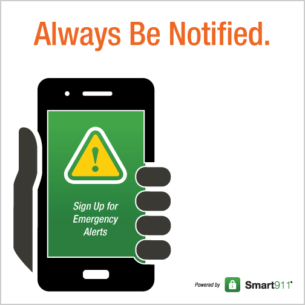Please see the below Press Release from the New Jersey State Police regarding a 175% increase in suspected overdose deaths in Sussex County last month.
State Police and Partners Issue Overdose Alert in Sussex County
175% Increase in Reported Suspected Drug-Related Overdoses in January
Ewing Township, N.J. – The New Jersey State Police Drug Monitoring Initiative (DMI), the New Jersey Office of the Chief State Medical Examiner, and the Sussex County Prosecutor’s Office are issuing an overdose alert after preliminary reporting indicates Sussex County experienced an increase in suspected drug-related fatal overdose incidents in the month of January 2020.
Eleven suspected drug-related fatal overdoses were reported for January 2020, a 175% increase from the 4 reported suspected drug-related fatal overdoses in December 2019. Naloxone administration reporting for Sussex County indicates a 50% increase in administrations by first responders (law enforcement and EMS) from December 2019 to January 2020. Statewide, New Jersey experienced a 9% increase in naloxone administrations from 2019 to 2020.
In addition, an increasing amount of heroin analyzed by state and independent forensic labs has contained fentanyl or fentanyl class compounds. Along with this increase, the presence of opioids (including fentanyl) that have been adulterated with stimulants also increased. Fentanyl, a synthetic opioid pain reliever is similar to morphine, but is 50 to 100 times more potent.
The purpose of this release is to provide life-saving information to those battling substance abuse and their loved ones, so that they better understand the drug environment and the resources and help available. Below is a list of tips for identifying a suspected drug-related overdose and how to provide immediate life-saving care:
Signs and symptoms associated with an overdose:
Slow, shallow breathing or not breathing.
Slow heartbeat or no heartbeat.
Not waking up or not responding to voice or touch.Limp body.Choking or gurgling sounds, vomiting.
Pale, clammy skin; blue or gray lips and fingertips.
Small, constricted “pinpoint pupils.”
If you suspect someone is experiencing an overdose, follow these steps:
Step #1 – Check Responsiveness – If someone is unconscious with shortness of breath or not breathing, rub your knuckles hard over their chest bone. If they are still unresponsive, call 911 immediately.
Step #2 – Perform Rescue Breathing – A majority of overdose deaths are due to respiratory failure, so rescue breathing is crucial when dealing with an overdose. Tilt the head, lift the chin, and pinch the nose. Seal their lips and give two quick breaths into their mouth. Then give one long breath every five seconds.
Step #3 – Administer Naloxone (if available) – Naloxone (Narcan) is a life-saving drug that reverses the effects of opiates.
Anyone who calls 911 to either help themselves or another person who has overdosed is provided some legal protection in the form of immunity from arrest, prosecution, or conviction for a use or simple possession drug charge under the New Jersey Overdose Protection Act. More information is available at http://www.njdcj.org/agguide/overdose-prevention-act.pdf.
Opioid overdoses can be reversed by administering the antidote naloxone, (Narcan), which is available at pharmacies without a prescription in New Jersey. To learn more about naloxone, visit: https://nj.gov/health/integratedhealth/services-treatment/naloxone.shtml.
A list of Sussex County pharmacies with standing orders to dispense naloxone without a prescription can be found at https://www.njcares.gov/Pharmacy-Locations.htm.
Treatment, Prevention, and Recovery resources are available in Sussex County through the ‘The Center for Prevention and Counseling’ by visiting https://centerforprevention.org/ or by calling the Peer Recovery Center at 973-940-2966.
For information on free naloxone trainings visit: https://centerforprevention.org/rcc/narcan
In 2013, the State Police developed the DMI, which employs a collaborative approach in combating the opioid epidemic at all angles by utilizing nontraditional partnerships. This approach pairs federal, state, and local law enforcement with non-law enforcement personnel, like medical professionals, to develop strategies that not only aid enforcement, but save lives and prevent addition.
In 2017, the Office of Drug Monitoring and Analysis (ODMA) was created to continue the expanding mission of the DMI. The ODMA is part of the New Jersey Regional Operations and Intelligence Center (ROIC). With the support of the ODMA, the DMI has been collecting and analyzing data and creating intelligence products, which have aided law enforcement with removing highly lethal brands of heroin and fentanyl from our communities, saving lives and putting drug traffickers behind bars.
Contributing agencies include: New Jersey Office of the Chief State Medical Examiner, New Jersey Department of Health, New Jersey Department of Mental Health & Addiction Services (NJDMHAS), New Jersey Office of the Attorney General’s Office of the NJ Coordinator for Addiction Responses and Enforcement Strategies, NJDMHAS Opioid Overdose Prevention Network, Morris/Sussex/Warren County Medical Examiner’s Office, Sussex County Prosecutor’s Office, and The Center for Prevention & Counseling (Sussex).

